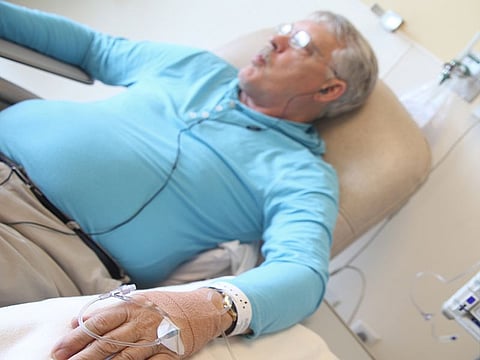TUESDAY, Nov. 22, 2016 (HealthDay News) -- Patients with muscle invasive bladder cancer who undergo neoadjuvant chemotherapy before and after radical cystectomy frequently experience thromboembolic events, according to a study published in the December issue of The Journal of Urology.
Wilhelmina C.M. Duivenvoorden, Ph.D., from McMaster University and Juravinski Hospital in Hamilton, Canada, and colleagues conducted a multi-institutional retrospective analysis of 761 patients who underwent neoadjuvant chemotherapy and radical cystectomy for muscle invasive bladder cancer. Patients were followed for a median of 21.4 months from diagnosis.
The researchers found that based on the Khorana score, 88 percent of patients had an intermediate thromboembolic event risk. In patients undergoing neoadjuvant chemotherapy, the overall incidence of thromboembolic events was 14 percent, with variation from 5 to 32 percent among institutions. Compared to patients without a thromboembolic event, patients with thromboembolic events were older and received a longer neoadjuvant chemotherapy course. Overall, 58 percent of thromboembolic events developed preoperatively and 72 percent were symptomatic. The development of a thromboembolic event was not associated with reduced overall survival on multivariable analysis. Adverse risk factors for survival included pathologic stage and high Khorana score.
"Thromboembolic events are common in patients with muscle invasive bladder cancer who undergo neoadjuvant chemotherapy before and after radical cystectomy," the authors write. "Our results suggest that a prospective trial of thromboembolic event prophylaxis during neoadjuvant chemotherapy is warranted."
Full Text


